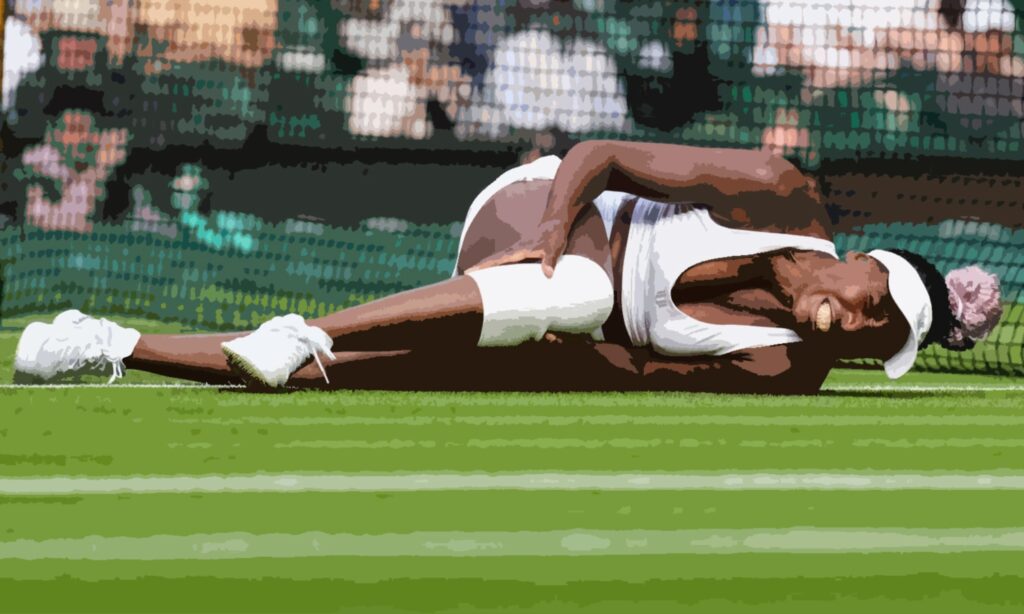Professional tennis players participate in tournaments year round to earn money and accumulate ranking points.
The tournament format consists of a series of matches organized into rounds.
Players progress through each round by eliminating their opponent at every stop.
The two remaining players from each bracket square off against each other in the championship match.
The last man standing is crowned the winner and earns all the glory.
For high ranking players, their journey into the quarterfinals or above can be a breeze.
Often, they offload their lesser opponents matches that seems like a mere formality.
In some cases, the victory comes in the form of a walkover.
What is a Walkover in tennis?
In tennis, a walkover is when one player or team wins a match by default because their opponent withdraws or fails to compete, often due to injury. The victory is earned because the other player concedes by pre-match forfeiture. The winning side automatically advances to the next round.
Another possible reason for a walkover is due to scheduling conflicts. This happens when one tournament overlaps with another of greater significance.
The difference could be in prize pool money, which the player may not want to give up.
While you won’t see this issue pop up a the highest of ATP or WTA events, it has happened at lower level pro tourneys before.
Does a Walkover Affect Player Rankings?
A walkover may affect the player rankings for both the winner and loser in various ways. The bigger the tournament (i.e. grand slam), the greater the impact.
Below is a summary for the impact to each player at every tournament level for both the men’s (ATP) and women’s (WTA) professional tennis circuits.
Men's Circuit
Tournament Winner Widthdrawing Player Consequences
Grand Slam Receives full ranking points for a win, similar to a regular match victory. May lose ranking points, especially if they reached later rounds or earned significant points before the walkover. A walkover can have a substantial impact on both players due to the high prestige and ranking points associated with Grand Slam events.
ATP Tour Masters 1000 Gains ranking points for a win, although the points may be slightly lower than a regular victory. May lose ranking points, particularly if they progressed deep into the tournament. A walkover can affect rankings but usually to a lesser extent compared to Grand Slam events.
ATP Tour 500 Receives ranking points, typically less than Masters 1000 or Grand Slam events. May lose some ranking points, especially if they had earned points in previous rounds. The impact of a walkover on rankings is generally lower compared to higher-tier events.
ATP Tour 250 Gains ranking points, typically fewer than higher-tier tournaments. May lose a few ranking points, but the impact is usually minimal. Walkovers in ATP 250 events have a relatively small effect on player rankings.
ATP Challenger Tour Receives ranking points, but they are considerably lower than those in higher-level events. Rarely loses ranking points due to walkovers in Challenger events. Walkovers in Challenger tournaments have a limited impact on player rankings.
Women's Circuit
Tournament Winner Widthdrawing Player Consequences
Grand Slam Receives full ranking points for a win, equivalent to a regular match victory. May lose ranking points, especially if they reached later rounds or earned significant points before the walkover. A walkover can have a substantial impact on both players due to the high prestige and ranking points associated with Grand Slam events.
WTA Premier Mandatory and Premier 5 Gains ranking points for a win, although the points may be slightly lower than a regular victory. May lose ranking points, particularly if they progressed deep into the tournament. A walkover can affect rankings but usually to a lesser extent compared to Grand Slam events.
WTA Premier Receives ranking points, typically less than in Premier Mandatory and Premier 5 events. May lose some ranking points, but the impact is generally minimal. The impact of a walkover on rankings is lower compared to higher-tier tournaments.
WTA International Gains ranking points, but the points awarded can vary depending on the specific event. Rarely loses ranking points due to walkovers in International tournaments. Walkovers in International events have a limited impact on player rankings due to lower-tier status and fewer ranking points awarded.
Walkover vs Retirement (Match)
Both a walkover and match retirement is a form forfeiture on the part of the withdrawing player.
The main difference is that a walkover is a pre-match forfeiture while the retirement happens usually mid-game.
While both the walkover and retirement can stem from an injury, the walkover is known to the opponent and tournament officials in advance.
When a player elects to retire from a match while in progress, both the coach and player would notify the chair umpire of the situation on the spot.
As mentioned before, a walkover can result from a scheduling conflict in which one tournament overlaps with another.
While you won’t see this at the high level, it does happen at minor professional tournaments with greater money purses at stake.
Final Thoughts
I’ve always known that tennis players can forfeit a match ahead of time.
In fact, you can see them struggling with injury in the match prior and making statements post-match wondering if they’ll be able to continue in the next round.
While there have been many famous walkovers to date, including some in the finals, the one that comes to my mind is that between the Williams sisters back 2001.
It happened at the Indian Wells Masters Series Tennis Tournament.
The match was scheduled to feature sisters Venus Williams and Serena Williams in the semifinals.
However, just minutes before the match was set to begin, Venus Williams withdrew due to injury, giving Serena Williams a walkover victory.
Serena went on to win the finals against Kim Clijsters much to the dismay of the fans.
They voiced their displeasure not only to Serena Williams, but also to Venus and her father watching from the stands.
They felt that Venus pulled out of the previous match to avoid a head-on confrontation with her sister and weakening either one of their chances of winning the tournament.






